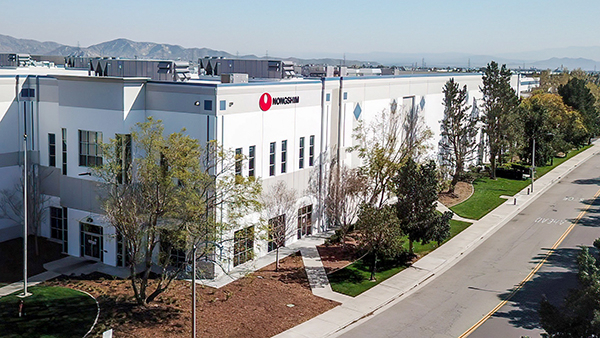 |
Nongshim's second production facility in Los Angeles, California (Nongshim) |
South Korean food giant Nongshim saw its profits nearly double in the first quarter, primarily led by its booming business in the US, the company's earnings report said Tuesday.
According to Nongshim's regulatory filing, the company's sales and operating profits during the January to March period were tallied at 860.4 billion won ($643 million) and 63.8 billion won, respectively, on a consolidated basis.
Compared to the same period last year, Nongshim's sales have increased by 16.9 percent, with its operating profit up by a whopping 85.8 percent.
Nongshim's first-quarter earnings growth were largely led by its US subsidiary, the profits of which jumped by 604.7 percent compared to last year, logging 18 billion won.
As of Q1, profits raised by Nongshim's US business made up nearly a third of the company's total profits.
A Nongshim official said that the operation of its second US plant in Rancho Cucamonga, California, attributed largely to increasing the company's US profits, as well as its overall profits -- as the plant had played a large role in decreasing fixed costs for producing and distributing Nongshim's products in the US market.
Moreover, he added that its earnings had been positively affected by the price hikes in its products, as during the second quarter of last year, Nongshim had increased the price of its goods sold in the US by an average of 9 percent.
"Nongshim's ramen products are starting to be recognized not as just a snack, but as a common replacement for a meal by Americans, following the increase in the popularity of K-culture and K-food," said the official.
Following its booming business in the US, Nongshim had hinted in March during a shareholder's meeting that it was planning to establish its third factory in the US.
Currently, out of its six production bases around the world, Nongshim operates two manufacturing factories in California, the capacity utilization rate of which stands at around 70 percent.
During the meeting, Nongshim Chair Shin Dong-won told reporters that Nongshim is currently considering building another production facility in the eastern region of the US, in order to propel its ramen business there based on a stable production and supply system.






![[Herald Interview] How Gopizza got big in India](http://res.heraldm.com/phpwas/restmb_idxmake.php?idx=644&simg=/content/image/2024/11/20/20241120050057_0.jpg)
